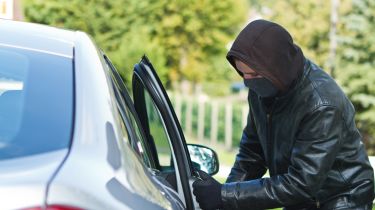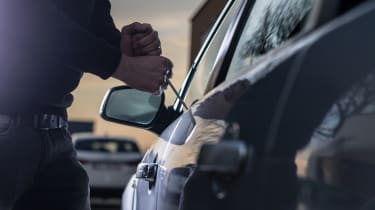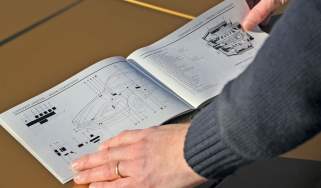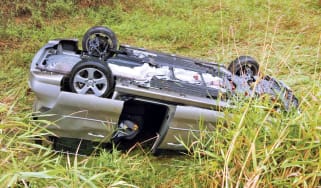How to check if a car is stolen
Find out how to check if a used car has been stolen or has a bad history before you buy

Buying a used car means taking a risk: not knowing exactly what happened to the car in the past means you could end up with a model that’s not been serviced correctly, is broken in some way or worse, is stolen. If you buy a stolen car you could have it seized back and given to the rightful owner even if you had no knowledge that it was stolen when you bought it, so it could cost you thousands.
You can avoid buying a stolen car by taking steps to check its history and make sure everything is above board before you hand over the money. Never let a good deal or any kind of pressure from a dealer or private seller convince you to part with your money before you’re completely happy with the product you’re buying, especially as dodgy sellers use this tactic to get the stolen goods sold quickly.
In this short guide we’ll look at some of the key steps you can take to ensure you are not about to buy a stolen car. Beware also of car scams, where the car doesn’t exist at all: the seller might try to get you to put a ‘deposit’ down for a car that never existed (using pictures of a real car to convince you). Always view a car before paying anything if there is any concern over its legitimacy.
How to check if a car is stolen
A basic check you can do when viewing the car is to ask the seller for the V5C document (the logbook). Make sure it’s an official document and has the correct watermark, plus it should have a serial number that is not between BG8229501 to BG9999030 or BI2305501 to BI2800000 (according to official advice, numbers in this range could mean it’s a fake).
You should also check that all the details match the car: it needs to have the same make and model listed, as well as the same colour and fuel type. The car’s VIN number will be printed on the V5C; check the VIN on the car to make sure they match. Usually the VIN is stamped into a panel by the windscreen. This will also give you a chance to check that the VIN has not been scraped off or tampered with. More experienced buyers will also check the engine number, but this is harder to access for a layman.

If the VIN isn’t present, or looks suspect in any way, ignore the seller and move on. There’s always more fish in the sea; it’s simply not worth the trouble if the car is stolen and the VIN has been changed. Dodgy sellers might explain it away with excuses but even if the car is legitimate, it’s probably not worth the effort for a private buyer to sort everything out.
You can also check to see that the seller’s address matches the one on the V5C, if you are buying privately. Dealers’ names and addresses don’t go onto a V5C, nor do they count towards the cars’ owner numbers, so if you are buying from a dealer then skip this step.
There are also some basic sense checks you can do. Is the car far cheaper than any other at that age or mileage? Is the seller trying to push you into a quick sale without viewing the car? Does the seller seem to know nothing about the car’s history, or has ‘lost’ key paperwork (such as the V5C)? Sometimes mistakes happen, but if you suspect anything then it’s probably best to walk away. If it looks too good to be true, it probably is.
Stolen car checks: how to avoid buying a stolen car
There are also services that can check the national database for you to see if a car has been stolen, scrapped, written-off or has outstanding finance applied to it. These are offered by loads of different brands but they all pretty much do the same thing: look up the car’s history and present it in their own way back to you.
Some examples of these checks are HPI Check or Total Car Check, along with similar services from motoring organisations like the AA or Green Flag. They all have a similar service and if you search online for stolen car checks then some free alternatives are available as well. Do your research before buying or using a car check service to find out which one will work best for you.
Be aware that these checks will only give you information about a stolen car if the information provided is for the car you are actually checking. In other words, if the number plate and/or VIN have been copied from a legitimate car, the check will come up clear even though the car in front of you could be stolen.
This is why online car checks should not be taken as proof the car is not stolen, as criminals know buyers will check the number plate using the service and many will take steps to ensure it comes up clean using something called car cloning.
What happens if I’ve bought a stolen car?
If you suspect a car is stolen you can call the police to get real-life advice on how to proceed. Keeping hold of stolen property when you know it is stolen is a crime in itself. The most likely course of action is that the police will seize the car to return it to the rightful owner and you will have to get your money back from the seller.
If the seller is a criminal then you probably will never see or hear from them again, but in the unlikely event a legitimate car dealer sold you the car, they will give you your money back (or risk you taking them to court for it).
You should also talk to your car insurance provider to get advice on how to proceed there. It’s likely that an insurance company is the rightful owner of any stolen car, since they essentially buy it from the previous owner who insured it and had it stolen from them. Insurers talk to each other so may be of some help with the process.
Don’t hold out hope of getting your money back easily. It could happen in some cases, but buying a stolen car is never going to result in an easy process, which is why you should put in effort before you buy to ensure the car is legitimate.
Looking to buy a new or used car? Make sure you understand the different types of car finance on offer…









